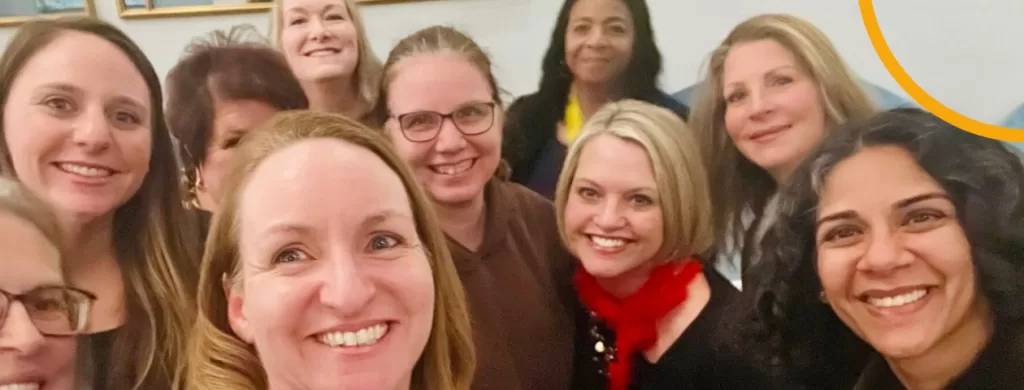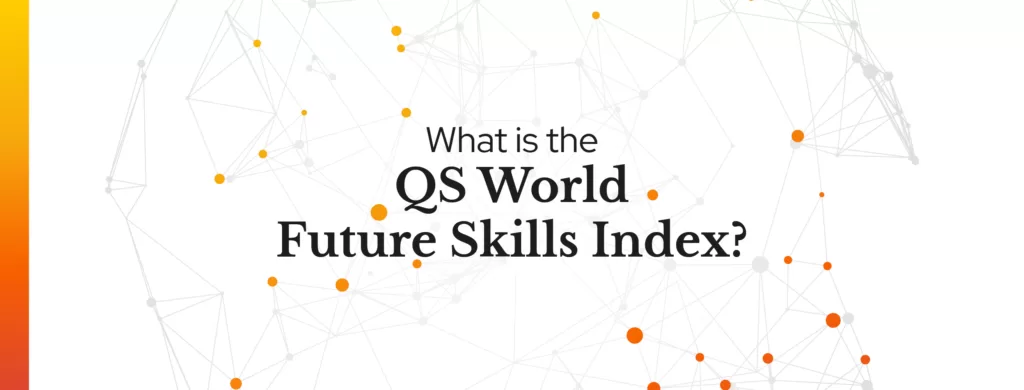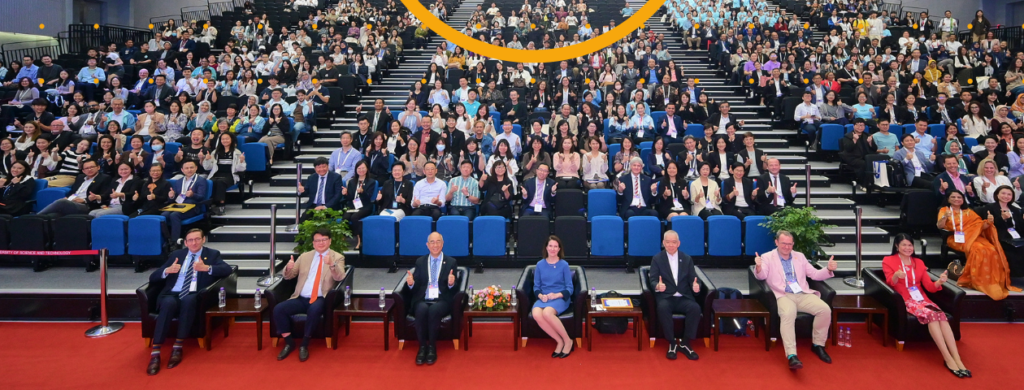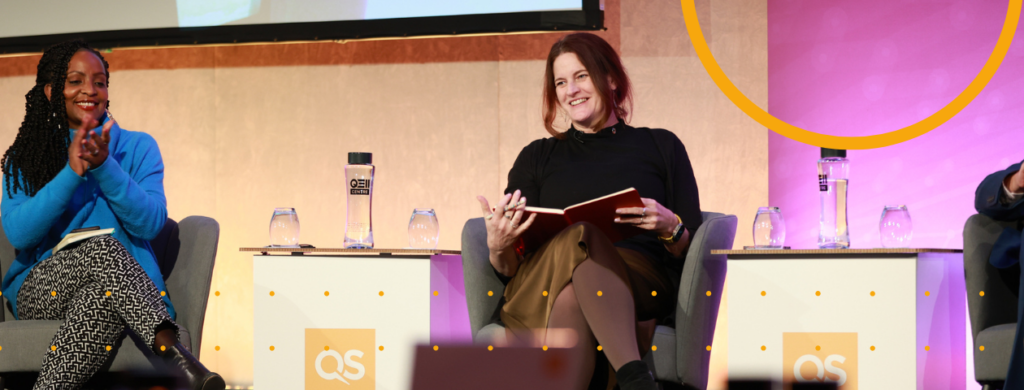
In a rapidly evolving technological landscape, universities are swiftly adapting to the rise of artificial intelligence (AI) by establishing guidelines for students on its effective use to meet current employer demands and reduce skills gaps. However, it’s also crucial to address the rising concern around the mental health and wellbeing of students – it’s a critical factor in their overall success and ability to navigate the challenges of the modern world.
The QS Global Employer Survey 2023 highlights a significant gap between employers’ perceived importance of a skillset and their satisfaction with it – particularly in ‘resilience and flexibility,’ with a 13% gap. This suggests that the educational focus on technical skills like coding and data sciences may be sidelining softer yet essential skills in the workplace.
At the QS Higher Ed Summit: Middle East 2024, leaders in higher education engaged in an inspiring panel: ‘Going with the (digital) flow’ – sharing valuable knowledge on how Middle Eastern universities can reshape their strategies to bridge the gap between academic output and market demand.
Embracing change
Kicking off the panel discussion was Professor Omar Al-Jarrah, Vice President for Planning and Development at Arab Open University, emphasising the critical need for all stakeholders within an institution to evolve in tandem with societal changes.
“Artificial intelligence is nothing new – and after 2023, Generative AI and ChatGPT, everything is changing. It’s our choice to adapt with this technology and we have to face it as all our students are using ChatGPT now, so it is a big challenge for the university to change the mindset of the professors, faculty and educators to prepare for an environment in which our students can leverage Generative AI and this will advance and accelerate the base of evolution.”
Given the prevailing concern that AI could facilitate cheating or replace humans, Dr Ali Khatibi, Senior Vice President for Post Graduate – Offshore Campuses at Management and Science University, urges us to reframe our perspective on the technology:
“We need to look at how we can use AI to enhance students’ knowledge. If we develop graduates that are ready for the future, they can do something better than what AI or machine is doing.”
The beginnings of it are already there, we just need to start speaking the same language.
Balancing industry needs and academic tradition
Dr Christine Looser, Senior Academic Director at Minerva Project, said that a gap between industry and institutions that haven’t changed much is inevitable. “What we need to understand is how do universities work with industry partners to address the challenges being faced? And a lot of academics find that question distasteful in a way as they believe they know what to teach and they’ve been doing this for a long time and built programmes on their content knowledge. So, it’s not that it’s not going to change, it’s just that there’s something distasteful about saying all we’re trying to do is produce people who can go off and be a cog in a corporate machine.
“The way to link those things together is to focus on durable skills – which are things universities are teaching anyway, but they’re not highlighting particularly well. There needs to be more communication between what’s happening inside of a university course and what’s happening in industry so that bridges can be closed because the beginnings of it are already there, we just need to start speaking the same language.”
Bridging the divide
Dr Looser emphasised the need for a clearer distinction between different types of skills when discussing the skills which universities offer: “There are rapidly changing technical skills, which we won’t be able to keep up with as universities and there are durable skills that we help students become people who can keep up with those skills on their own, with support from universities over time.”
Dr Khatibi shared insights on how Khalifa University is working to bridge skills gaps and why their 99% post-graduation employment success rate is attributed to a balance between academic knowledge and industry needs.
“For every single subject we teach at every level, all the compulsory skills bring industry into the classroom. For example, if I’m teaching marketing, I need to bring people from the industry to teach and to share knowledge on what is happening and that is a continuation. By involving industries inside the classroom, in every subject, we have seen that the gap is becoming closer and closer.”
“We need support services because people are coming to universities, immersed in technology that hasn’t given them the chance to become a flexible thinker.“
Underlining the mental health and wellbeing gap in Generation Alpha
Panel moderator Ahmad Obaidat, CEO and Founder at Unihance, suggested that the gap between the efforts of educators and the progress and success of students is not primarily due to technology but rather a significant misalignment in addressing the mental health and wellbeing of Generation Alpha.
Dr Looser was first to reply: “I feel that what we’re seeing from universities across the world are more and more resources being poured into student services, student support and mental health and counselling – that’s not a bad thing as mental health treatment saves lives. The challenge is that you are treating the cause instead of the symptom, and so we need support services because people are coming to universities, immersed in technology that hasn’t given them the chance to become a flexible thinker, who’s well adapted to a constantly complex changing environment. “
She continued: “When you think about our purpose as educators, it really has to be about preparing students for an uncertain changing world,” – adding it doesn’t seem right to “outsource” the challenge to counselling staff rather than find an education solution to support students to “thrive in the world they inherit”.
How can we address the mental health crisis within institutions?
Dr Looser suggested addressing this issue by instilling a sense of “agency and action,” which she believes is increasingly lacking in universities.
“Students have a lot of depression and anxiety from the lack of social connection, being unable to adapt, and the sense that they’re alone and a little bit hopeless. When you get overwhelmed, that’s a feeling but when you get overwhelmed and feel like you can’t do anything about it is when it becomes a mental health issue. This is something that can be fixed in the classroom if we design for the way that humans learn – and humans learn by being equipped, empowered and connected.”
However, Dr Khatibi believes that we must delve even deeper into the root of the problem: “When Generation Alpha is growing up, they are in machines from the time they open their eyes and when they cry – the pattern is to give them a mobile game or watch a movie or cartoon. These kids are growing up with no interaction with other children, and that is today’s mental health issue. We have to bring children back to real life, talking to humans and not talking to machines.
“At the university level we cannot blame everything on the institution, but the university can work on building closer relationships with their students and have a balance between society and university so that we can work together to solve these mental issues.”



